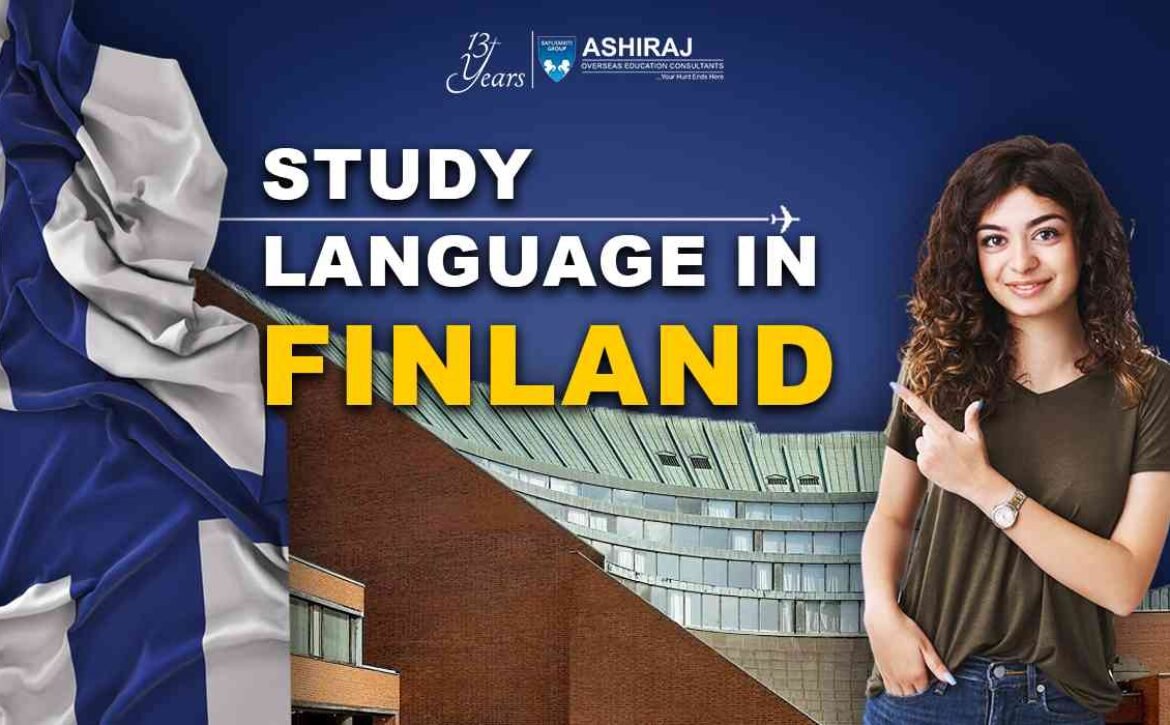
Language in Finland
Language in Finland is a multifaceted aspect deeply intertwined with the country’s cultural identity and societal structure. Finland boasts two official languages: Finnish and Swedish, reflecting its historical ties and linguistic diversity. Finnish, a member of the Finno-Ugric language family, is the dominant language spoken by the majority of the population, while Swedish holds official status primarily in regions along the coast and archipelago. The Finnish language, renowned for its complexity yet rich expressiveness, plays a pivotal role in shaping various spheres of life, from education and governance to literature and media.
In addition to the official languages, Finland is also home to several minority languages, including Sami, Romani, and Karelian, among others, which contribute to the country’s linguistic tapestry. The Finnish education system emphasizes bilingualism, ensuring that citizens have proficiency in both Finnish and Swedish, enhancing societal cohesion and fostering inclusivity. Moreover, initiatives aimed at preserving and revitalizing minority languages highlight Finland’s commitment to linguistic diversity and cultural heritage, making language an integral component of the nation’s identity and ethos.
Why Study Language in Finland?
- Bilingual Society: Finland is officially bilingual, with Finnish and Swedish as its official languages. Studying language in Finland provides an opportunity to immerse oneself in a bilingual environment, enhancing proficiency in both languages.
- Cultural Richness: Finland’s linguistic diversity extends beyond its official languages, encompassing minority languages such as Sami, Romani, and Karelian. Exploring these languages offers insights into Finland’s rich cultural heritage.
- Education System: Finland’s renowned education system emphasizes bilingualism from an early age, making it an ideal destination for language study. The system ensures that students have access to high-quality language education and resources.
- Career Opportunities: Proficiency in Finnish and Swedish opens doors to a wide range of career opportunities in Finland, particularly in sectors such as education, government, and media. Additionally, knowledge of minority languages can be advantageous in certain industries.
- Cultural Exchange: Studying language in Finland facilitates cultural exchange and fosters connections with people from diverse linguistic backgrounds. It provides a platform for intercultural dialogue and understanding.
- Linguistic Expertise: Finland’s reputation for language education excellence attracts students seeking to develop advanced linguistic skills. Whether studying Finnish grammar or delving into Swedish literature, Finland offers resources and expertise for language enthusiasts.
In conclusion, studying language in Finland offers a unique opportunity to immerse oneself in a bilingual society, explore a rich cultural tapestry, access high-quality education, enhance career prospects, engage in cultural exchange, and develop linguistic expertise.
Top Universities to Study Language in Finland
University | QS World University Ranking 2023 | Type of University | Average Annual Fees | Programs Offered |
University of Helsinki | 75 | Public | €0-€15,000 | Finnish Language and Culture, Swedish Language and Culture, Multilingual Communication, Translation Studies |
Aalto University | 130 | Public | €0-€15,000 | Language Technology, Linguistics, Communication Studies, Multilingual Communication |
University of Turku | 290 | Public | €0-€12,000 | Finnish Language and Culture, Swedish Language and Culture, Translation Studies, European Languages |
University of Jyväskylä | 301-350 | Public | €0-€12,000 | Finnish Language and Culture, Swedish Language and Culture, Multilingual Communication, Translation Studies |
University of Oulu | 501-550 | Public | €0-€12,000 | Finnish Language and Culture, Multilingual Communication, Translation Studies, Linguistics |
Studying language in Finland offers a plethora of options, especially with its top universities excelling in language-related programs. The University of Helsinki, ranked 75th globally, provides diverse programs in Finnish and Swedish language and culture, alongside translation studies and multilingual communication. Aalto University, ranked 130th, offers programs in language technology, linguistics, and communication studies, catering to modern linguistic needs. The University of Turku, positioned at 290th, provides a comprehensive range of language programs, including European languages and translation studies. University of Jyväskylä, ranked between 301-350, focuses on Finnish and Swedish language and culture, emphasizing multilingual communication and translation studies. Lastly, the University of Oulu, ranking between 501-550, offers programs in Finnish language and culture, multilingual communication, translation studies, and linguistics, making it a hub for linguistic exploration in Finland.
Course Curriculum for Language in Finland
- Multifaceted Approach: The course curriculum of Language in Finland adopts a multifaceted approach, encompassing linguistic theory, practical language skills, and cultural studies.
- Language Proficiency: Students focus on developing proficiency in Finnish and Swedish, the two official languages of Finland, through immersive language classes and interactive language labs.
- Cultural Context: The curriculum delves into the cultural context of languages, exploring literature, history, and societal norms to provide a comprehensive understanding of language use.
- Specialized Tracks: Students have the option to specialize in areas such as translation studies, language technology, or multilingual communication, tailoring their studies to their interests and career goals.
- Practical Experience: Practical experience is emphasized through internships, study abroad programs, and language immersion activities, allowing students to apply their language skills in real-world settings.
- Research Opportunities: Language in Finland programs often offer research opportunities, enabling students to contribute to linguistic research and innovation in areas such as language acquisition, sociolinguistics, and computational linguistics.
- Interdisciplinary Approach: Many Language in Finland programs adopt an interdisciplinary approach, integrating aspects of linguistics, communication studies, and cultural studies to provide a holistic education in language and society.
Eligibility Criteria & Admission Requirements for MS in Language in Finland
- Language Proficiency Test Scores:
Applicants must demonstrate proficiency in English or Finnish/Swedish by providing scores from either the International English Language Testing System (IELTS) or the Test of English as a Foreign Language (TOEFL).
Alternatively, proficiency in Finnish or Swedish can be demonstrated through language tests administered by Finnish universities.
Test | Minimum Score |
IELTS | 6.5 |
TOEFL | 80 |
- Standardized Test Scores:
Some programs may require applicants to submit scores from either the Graduate Record Examination (GRE) or the Graduate Management Admission Test (GMAT) as part of the application process.
Test | Minimum Score |
GRE | 310 |
GMAT | 600 |
- Documentation:
Applicants are typically required to provide valid passport and student visa documents for international applicants.
Academic certificates demonstrating completion of relevant qualifications or degrees are necessary.
Some programs may consider relevant work experience in the field of language, linguistics, or related areas as part of the eligibility criteria.
Adhering to these eligibility criteria ensures that applicants possess the necessary language proficiency and academic qualifications to succeed in Language in Finland programs.
Documents Required for Studying Language in Finland
- Passport:
A valid passport is essential for international applicants to verify their identity and citizenship status.
- Letters of Recommendation (LOR):
Typically, two letters of recommendation from academic or professional sources are required to assess the applicant’s suitability for Language in Finland programs.
- Statement of Purpose (SOP):
An SOP provides insights into the applicant’s academic and professional background, their motivations for pursuing language studies in Finland, and their career aspirations.
- Curriculum Vitae (CV):
A comprehensive CV outlines the applicant’s educational qualifications, work experience, language proficiency, and relevant skills.
- Official High School Transcripts:
Transcripts from the applicant’s high school or equivalent educational institution are necessary to assess academic performance and eligibility for language programs.
- Educational Certificates:
Certificates verifying the completion of previous academic qualifications, such as diplomas or degrees, are required for admission consideration.
- Work Experience Certificate:
If applicable, a work experience certificate demonstrating relevant professional experience in language-related fields may be requested.
- Proof of Financial Resources:
Evidence of financial resources, such as bank statements or sponsorship letters, is necessary to ensure the applicant can support themselves financially during their studies in Finland.
Submitting these documents is crucial for international applicants seeking admission to Language in Finland programs, as they demonstrate the applicant’s qualifications, capabilities, and financial readiness for academic pursuits in Finland.
Admission Process for Language in Finland
- Research Programs:
Explore language programs offered by Finnish universities, considering factors such as curriculum, faculty expertise, and university reputation.
- Review Admission Requirements:
Familiarize yourself with the specific admission requirements for each program, including language proficiency tests, standardized test scores, and document submissions.
- Prepare Required Documents:
Gather necessary documents, including passport, academic transcripts, letters of recommendation, statement of purpose, curriculum vitae, and proof of financial resources.
- Take Language Proficiency Tests:
Take either the International English Language Testing System (IELTS) or the Test of English as a Foreign Language (TOEFL), if required, to demonstrate English proficiency. Alternatively, take Finnish/Swedish language tests if applicable.
- Submit Application:
Complete the online application form provided by the university, ensuring all required documents are uploaded accurately and within the specified deadline.
- Pay Application Fee:
Pay any applicable application fees as per the university’s instructions.
- Wait for Admission Decision:
Await the university’s decision on your application, which may take several weeks. Check your email regularly for updates or log in to the university’s admission portal.
- Accept Offer and Arrange Visa:
If accepted, accept the offer of admission and begin the process of arranging your student visa, if necessary.
Following these steps meticulously ensures a smooth and successful admission process for Language in Finland programs, paving the way for a rewarding academic journey in a linguistically rich environment.
“Education is the most powerful weapon which you can use to change the world.”
Nelson Mandela
Cost of Language Course in Finland
- Tuition Fees:
Finnish universities typically offer tuition-free education for EU/EEA students and charge moderate tuition fees for non-EU/EEA students, ranging from €0 to €15,000 per year, depending on the program and institution.
- Living Expenses:
While tuition fees may be minimal, students should budget for living expenses, including accommodation, food, transportation, and personal expenses. On average, monthly living expenses in Finland range from €700 to €1,200.
- Accommodation Costs:
Accommodation costs vary depending on factors such as location, type of accommodation, and amenities. Options include student dormitories, shared apartments, and private rentals, with prices ranging from €250 to €800 per month.
- Healthcare Insurance:
All students studying in Finland are required to have health insurance. EU/EEA students can usually access healthcare services with their European Health Insurance Card (EHIC), while non-EU/EEA students may need to purchase private health insurance, costing around €50 to €100 per month.
- Additional Expenses:
Additional expenses may include study materials, leisure activities, and occasional travel. Budgeting for these expenses ensures a comfortable and enjoyable student experience in Finland.
Understanding the cost of studying Language in Finland helps students plan their finances effectively and make informed decisions about their education abroad.
Scholarships for Language Courses in Finland
Scholarship Name | Amount | Application Deadline |
Finnish Government Scholarships for Language Studies | Varies | 31st January |
University-Specific Scholarships | Varies | Varies |
Erasmus+ Scholarships | Varies | Varies |
CIMO Scholarships | Varies | Varies |
EduFI Scholarships | Varies | 31st January |
Securing scholarships can significantly alleviate the financial burden of studying Language in Finland. The Finnish Government offers scholarships specifically for language studies, with an application deadline typically set for January 31st. Additionally, many universities in Finland provide their own scholarships to support international students pursuing language programs, with varying amounts and deadlines. The Erasmus+ program also offers scholarships for language students, providing opportunities for study exchanges within Europe. CIMO (Centre for International Mobility) scholarships are available for students from specific countries, covering various fields including language studies. Moreover, EduFI scholarships, with an application deadline also set for January 31st, offer financial support to international students enrolled in Finnish higher education institutions. Applying for these scholarships opens doors to studying Language in Finland without the financial burden.
Career Opportunities After Language in Finland
Job Profile | Average Salary (per year) |
Translator | €30,000 – €40,000 |
Language Teacher | €25,000 – €35,000 |
Interpreter | €35,000 – €45,000 |
Language Specialist | €40,000 – €50,000 |
Localization Manager | €45,000 – €55,000 |
Language in Finland opens up a plethora of career opportunities with competitive average salaries. Translators play a crucial role in bridging linguistic gaps, earning an average salary ranging from €30,000 to €40,000 per year. Language teachers, imparting their knowledge and expertise, earn between €25,000 and €35,000 annually. Interpreters, facilitating communication across languages, command salaries between €35,000 and €45,000 per year. Language specialists, leveraging their linguistic skills in various domains, earn an average salary of €40,000 to €50,000 annually. Localization managers, overseeing language-related projects and strategies, enjoy salaries ranging from €45,000 to €55,000 per year. Pursuing a career in Language in Finland not only offers fulfilling professional opportunities but also ensures financial stability with attractive average salaries across diverse job profiles.
Frequently Asked Questions About Language in Finland
The official languages of Finland are Finnish and Swedish.
Yes, many universities in Finland offer programs for studying Finnish as a foreign language, catering to international students.
It depends on the program and university. While many programs are offered in English, knowing Finnish can be advantageous for daily life and cultural immersion.
Language proficiency requirements vary depending on the program and university. International students may need to demonstrate proficiency in English or Finnish/Swedish through standardized tests like IELTS, TOEFL, or university-specific language tests.
Yes, there are scholarships available for language studies in Finland, including government-funded scholarships, university-specific scholarships, and international scholarship programs like Erasmus+.
Yes, international students with a valid residence permit are allowed to work part-time in Finland. However, there are restrictions on the number of hours allowed per week during the academic year.
The time it takes to learn Finnish or Swedish varies depending on factors such as language proficiency level, learning methods, and dedication. Immersion programs and daily practice can accelerate the learning process.
Finding accommodation in Finland can be challenging, especially in popular student cities like Helsinki and Turku. It’s recommended to start searching for accommodation well in advance and explore options such as student housing, shared apartments, and private rentals.
Yes, Finland offers numerous opportunities for cultural immersion, including language exchange programs, cultural events, and interactions with local communities. Engaging in extracurricular activities and exploring Finnish traditions can enhance the cultural experience.
Graduates of language programs in Finland have various job prospects, including roles as translators, language teachers, interpreters, language specialists, and localization managers. The demand for multilingual professionals in Finland’s internationalized workforce provides ample opportunities for career advancement.




